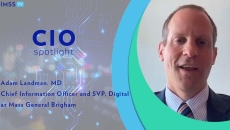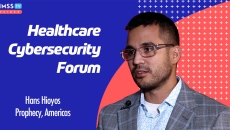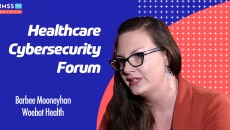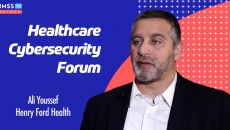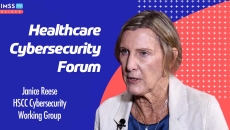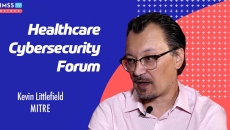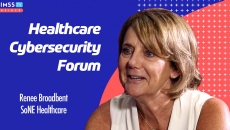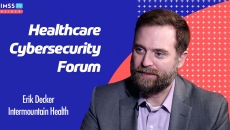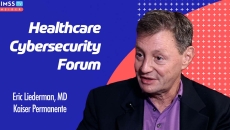Cybersecurity and Privacy
Dr. Adam Landman, chief information officer at Mass General Brigham, relays how generative AI and LLM technology are changing the healthcare workforce burden and how these scalable solutions improve efficiencies within the health system.
Hans Hioyos, field CISO of Prophecy, Americas, discusses how the cybersecurity forum helped him advance his learning of the various layers of security and expand his network as a cybersecurity specialist in the medical field.
Barbee Mooneyhan, VP of security, IT and privacy at Woebot Health, highlights how security, operating systems and threats have evolved – and the importance of embedding security specialists to protect patient and company information.
Ali Youssef, cybersecurity director at Henry Ford Health, relays why it is difficult for health systems to defend themselves from malicious actors and how institutions should prepare now for an inevitable cybersecurity breach.
SPONSORED
As healthcare organizations embrace new care delivery paradigms with the addition of recent technologies, they must ensure that they have sufficient technical integration to support their goals.
Janice Reese, an advisory member of the HSCC Cybersecurity Working Group, highlights the importance of ensuring patient data is not siloed, but available across facilities, up-to-date and better secured.
Kevin Littlefield, principal of cybersecurity at MITRE, explains how home care may be susceptible to cybercriminals and how hospitals can ensure patient security as home-based care and RPM become more prevalent.
Renee Broadbent, CIO and information security officer at SoNE Healthcare, relays the ways her organization creates a culture of security, engages executive leadership in cybersecurity as cybercriminals get more sophisticated.
Erik Decker, Intermountain Health CISO and chair of the Health Sector Council's Cybersecurity Working Group, discusses the private sector and federal government task groups, and how the teams are learning to avoid malware attacks.
Healthcare organizations need to do everything possible to protect against breaches by outsiders and insiders, and prepare for recovery from a successful attack, says Dr. Eric Liederman, director of medical informatics at Kaiser Permanence.
